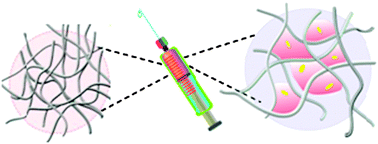Rheological properties of peptide-based hydrogels for biomedical and other applications†
Abstract

- This article is part of the themed collection: Peptide- and protein-based materials
* Corresponding authors
a
Department of Materials Science and Engineering, Delaware Institute of Biotechnology, University of Delaware, Newark, USA
E-mail:
pochan@udel.edu
Fax: +1 302-831-4545
Tel: +1 302-831-3569

 Please wait while we load your content...
Something went wrong. Try again?
Please wait while we load your content...
Something went wrong. Try again?
C. Yan and D. J. Pochan, Chem. Soc. Rev., 2010, 39, 3528 DOI: 10.1039/B919449P
To request permission to reproduce material from this article, please go to the Copyright Clearance Center request page.
If you are an author contributing to an RSC publication, you do not need to request permission provided correct acknowledgement is given.
If you are the author of this article, you do not need to request permission to reproduce figures and diagrams provided correct acknowledgement is given. If you want to reproduce the whole article in a third-party publication (excluding your thesis/dissertation for which permission is not required) please go to the Copyright Clearance Center request page.
Read more about how to correctly acknowledge RSC content.
 Fetching data from CrossRef.
Fetching data from CrossRef.
This may take some time to load.
Loading related content
